Created New AI-Based MedTech Ventures To Tackle Challenges in Mental Health for Eastern AHSN
Studio Zao designed and ran MedTechBOOST, a one-week sprint for the Eastern Academic Health Science Network to create early-stage ventures for the NHS. We applied our systematic lean venture-building process and created AI-based MedTech ventures to tackle challenges in Mental Health and Healthy Ageing.
Background
Eastern Academic Health Science Network (EAHSN), is one of 15 AHSN in the UK set up to spread innovation at pace and scale across the healthcare system. They work across the East of England region to help promote health service improvement and innovation. Amongst improving the health of the local population, they aim to generate economic growth by supporting innovators. They enable companies to grow and create jobs by helping NHS organisations and industry to engage more productively, and were looking for early-stage ventures to be introduced into the healthcare innovation pipeline.
The Cambridge Judge Business School – the business school of the University of Cambridge, and Taylor Vinters, an international law firm supporting businesses that drive the innovation economy, joined the initiative as sponsors
Brief
EAHSN asked Studio Zao to create early-stage ventures to be added to the innovation pipeline of the NHS healthcare system. With the help of local health organisations such as Cambridgeshire and Peterborough NHS Foundation Trust, we agreed on the focus challenges.
Mental Health
How might AI be applied to improve patients’ safety and prevent suicidal behaviour or detect impending violent behaviour?
Healthy Ageing
How might AI facilitate targeted, personalised care in older people with multiple co-morbidities and detect Alzheimer’s disease before symptoms arise?
IMPACT
Studio Zao collaborated with EAHSN and The Bradfield Centre in Cambridge to design and run MedTechBOOST, an intensive one-week sprint. In this time we created 6 AI-based MedTech ventures to tackle challenges in Mental Health and Healthy Ageing.
We designed and managed the end-to-end programme by:
Scoping the challenges with the NHS and EASHN leadership
Recruiting and teaming applicants across Cambridge Academia and Startup ecosystem
Preparing and delivering the actual sprint content through expert facilitators and trainers on the field
Selecting speakers, judges and industry-leading mentors
During the first two months, we interviewed and screened over 60 applicants and created 6 teams all of which included industry experts and top Cambridge talent — such as researchers, PhD, post-doctorates and early-stage startups from a variety of disciplines, freelance software developers & technologists, doctors and other clinicians — for an intensive and focused 5-day sprint.
-
Teams started their entrepreneurial journey and went through lean principles. The focus was on customer segments and their problems, on ideation and on exploring revenue streams. Teams ended with a clear idea of the assumptions to be validated during day 2.
-
Teams were able to validate their assumptions and received senior expert guidance and mentoring from an array of programme partners including Cambridge Judge Business School Entrepreneurship Centre sponsors, as well as 18 industry partners*.
-
Teams had the chance to build their digital prototypes with input from leading experts in UX and AI.
-
Teams spent the day business planning to deliver their ideas across the entire National Healthcare Service, defining their next steps and asks, and putting together their pitches.
-
Teams were able to refine their business propositions and rehearse their pitches. The programme concluded with a showcase where they pitched in front of a public audience of 100+ people and discussed potential investment and collaboration with programme partners and sponsors.
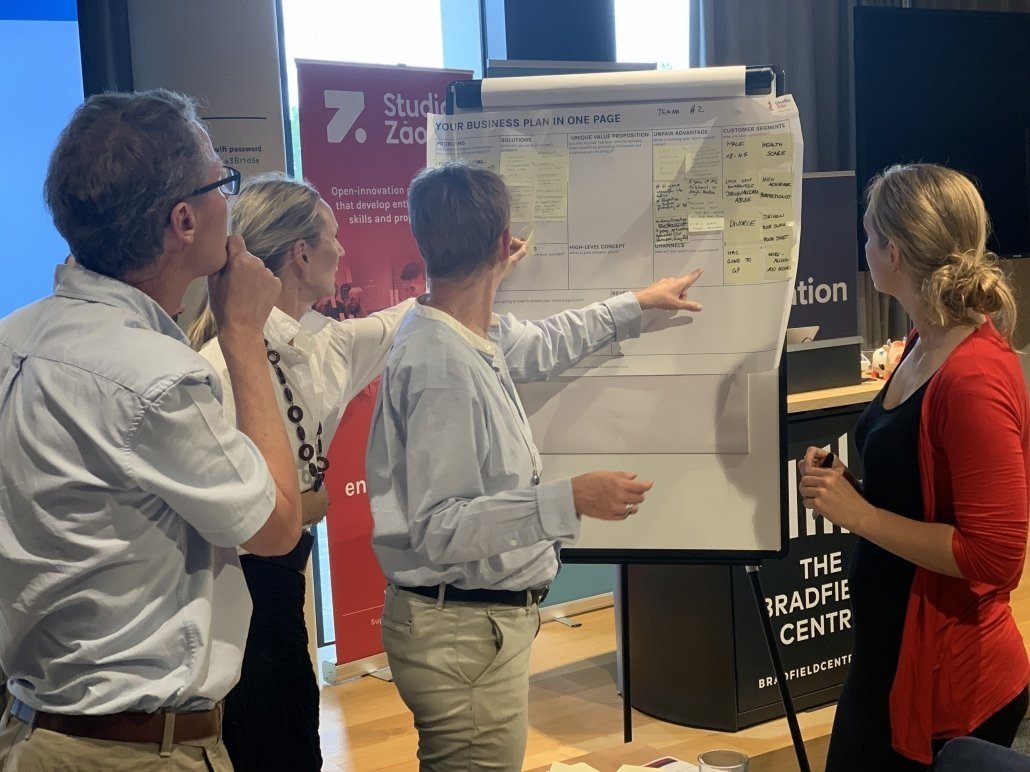
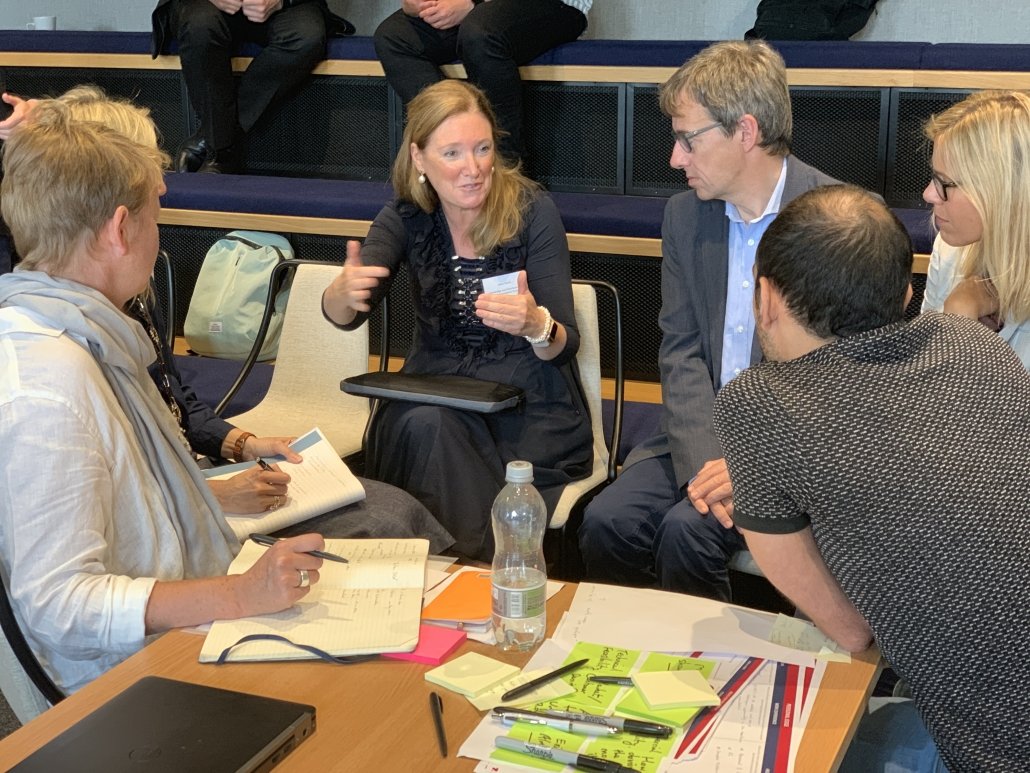
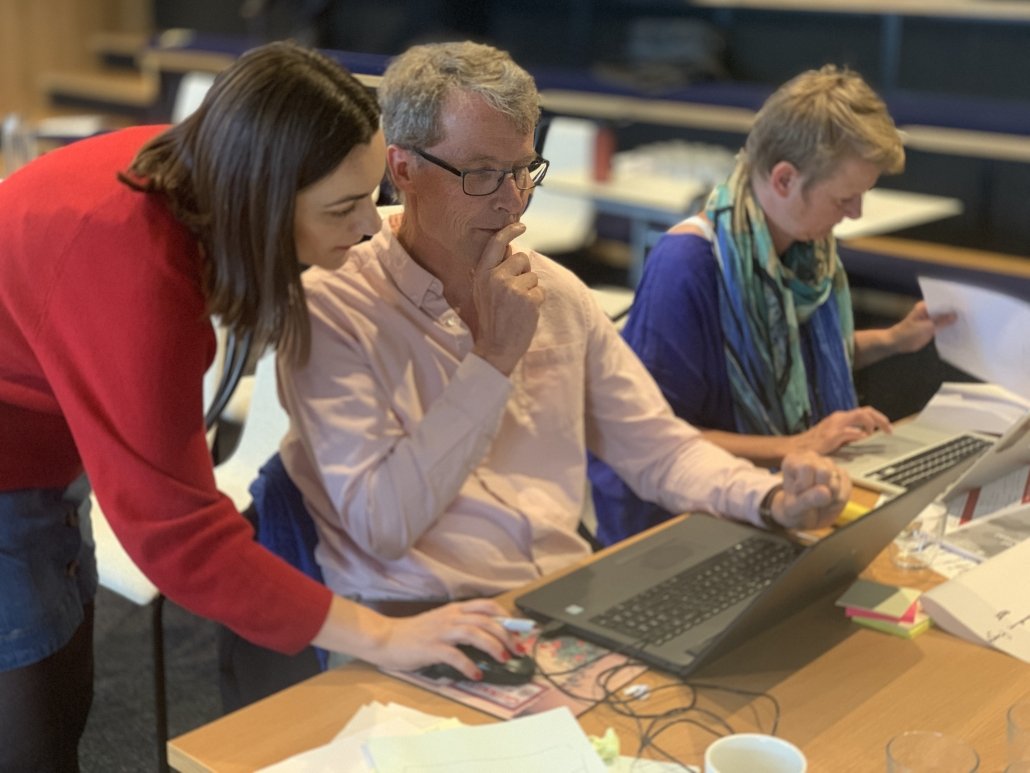
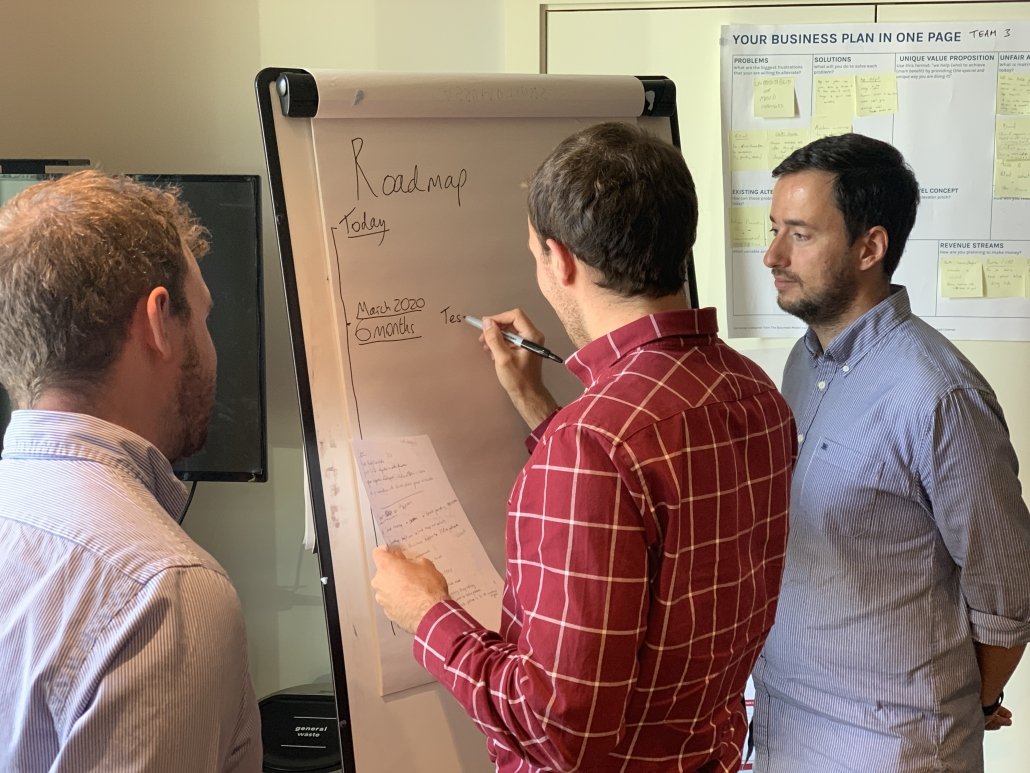
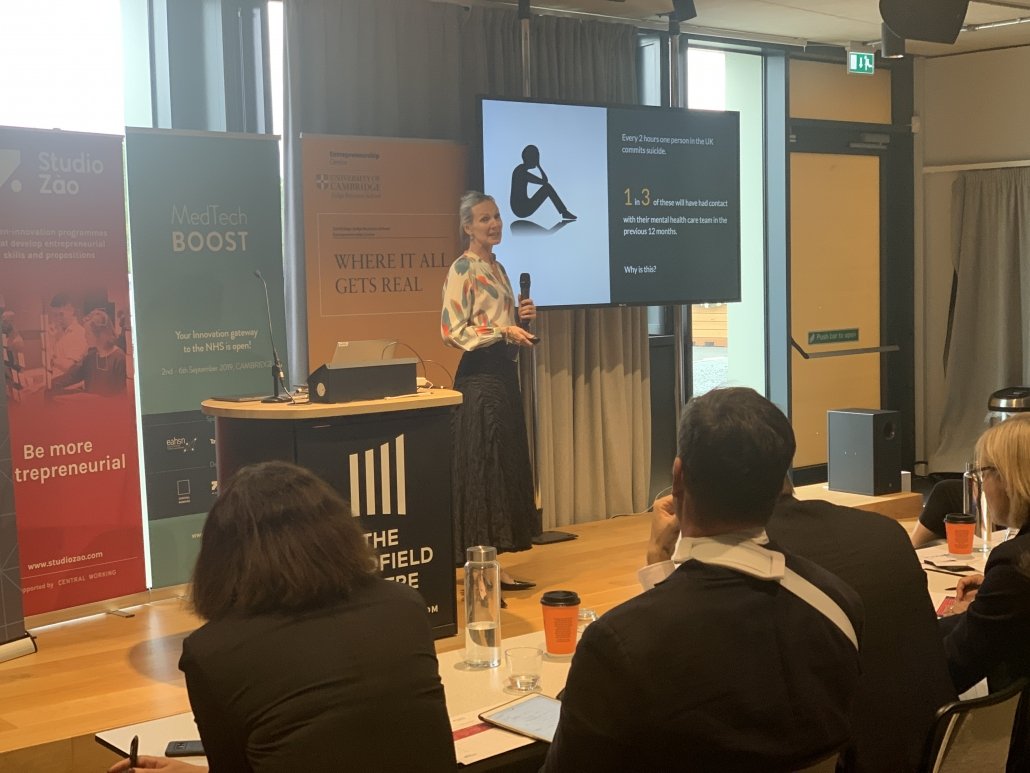
Outcomes
By the end of the one-week sprint, 6 teams pitched their new ventures that could collectively save the NHS billions of pounds a year to a judging panel. The programme sponsor is now actively assisting them through their next steps.
Moreover, participants were able to fully understand the entrepreneurial process that covers problem definition, ideation, business modelling, rapid prototyping, assumption validation and pitching.
The judging panel included the following:
Louise Jopling – Commercial Director, EAHSN
Bruno Cotta – Executive Director, Cambridge Judge Entrepreneurship Centre
Patrick Farrant – Partner, Taylor Vinters
Lilian Alcaraz – Senior Director, New Ventures & Transactions, Neuroscience, J&J
Peter Ferguson – Director Healthcare Technologies, ARM
Claus Bendtsen – Executive Director, AstraZeneca
Michael Anstey – Partner, Cambridge Innovation Capital
The winning teams were:
-
Equilibrium: helping bipolar patients predict mood changes – using machine learning-based software which passively collects sleep and activity data to predict mood changes. The software alerts the user and directs them to support.
-
Cambridge MemTech: solving diagnosis of Alzheimer’s disease – by using machine learning on a global dataset to aid in decision making for clinicians and early detection.
-
Cam AI: reducing adolescent self-harm – using AI in social media to detect self-harm imagery/wording and sending alerts to the user and signposting them to a chatbot based on CBT therapy.
What our Clients Say
“Studio Zao team has created a very helpful and enjoyable accelerator program that allows you to take what you need for your business and expand your network.”
Daria Sopelkina
Tech Project Manager
Have any thoughts or questions?







